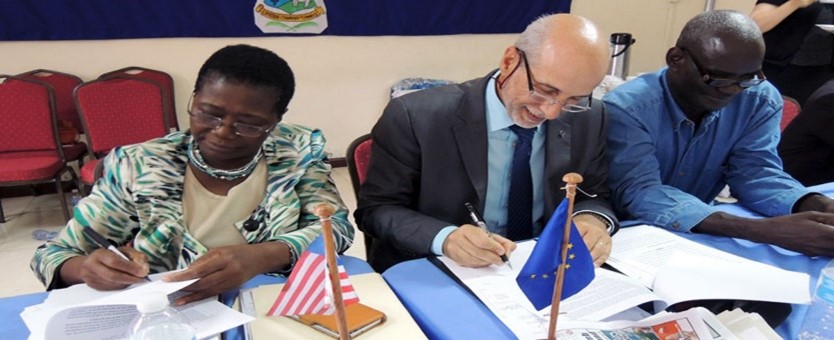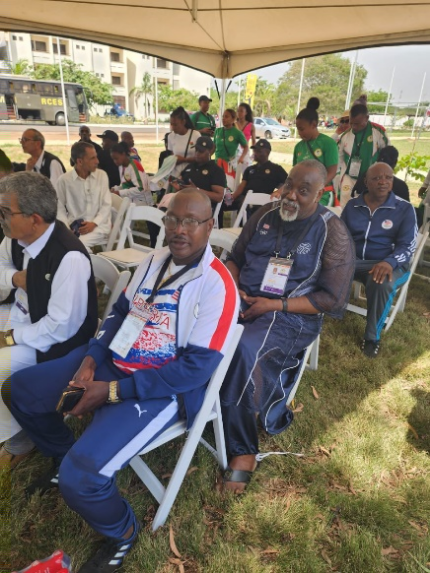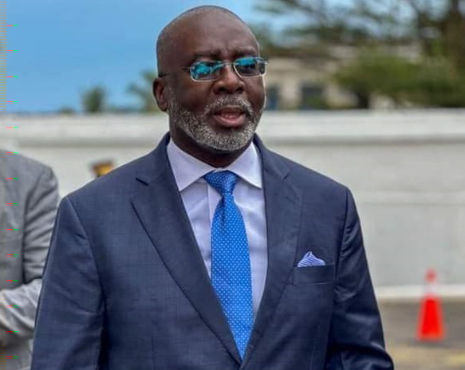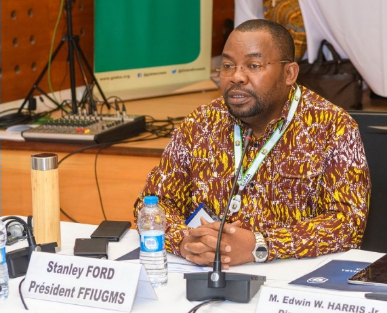As the international COP29 climate talks begin in Baku, Azerbaijan next week, the European Union has suddenly decided to cut its support for forest trade treaties—called Forest Law Enforcement Governance and Trade (FLEGT) Voluntary Partnership Agreements (VPAs)—with two African countries in spite of demonstrated results in helping these countries curb illegal logging and strengthen national controls against illicit trade by timber mafias, announced the Liberia-based Sustainable Development Institute (SDI) today. Dropping VPAs will likely increase pressure on forests from illegal logging and reverse governance gains.
“This will send the wrong signal to EU’s tropical forest partners after the recent Conference of Parties of the Convention on Biological Diversity (COP16) and before the UN Climate Change Conference of the Parties (COP29). It could undermine the 2024—2029 political guidelines laid out in ‘Europe’s Choice’ by freshly elected Commission President Ursula von der Leyen,” said Jonathan W. Yiah, Coordinator of SDI’s Forest Governance Program.
“This is an ironic move by the EU as they up their rhetoric on climate change and the need for Africa to reduce tropical deforestation,” said Dr Arthur Blundell, formerly with the United Nations Security Council Affairs Division Pool of Experts. “Only a few decades ago Liberia’s forest sector was synonymous with crime and conflict. President Charles Taylor looted the country’s forests to fund two civil wars.”
Cameroon is increasingly affected by conflict and banditry, according to the World Bank’s classification of fragile and conflict affected situations. Despite these challenges, both countries are taking concrete steps in their own backyards to improve the way they manage their forests and ensure the benefits from sustainably and legally produced wood are distributed to local communities under these forest partnership agreements.
In Liberia for example, some of the tax revenues raised from forest management go to fund community development projects, such as community construction of local health care clinics, schools and vocational training centers, according to Blundell.
The FLEGT process is overhauling forest governance in timber-producing countries with an approach that gives voices to populations used to being unheard, and that secures the rights of those most affected by forest destruction. At the same time, it provides significant trade incentives to governments and the private sector through the promise of “green lane” access to EU markets. To build a more level playing field, the VPA’s insistence on stakeholder participation, transparency, and accountability−typically where such political traditions have not existed−has profoundly improved the governance landscape, according to experts and research.
Liberia signed a similar forest partnership agreement with the EU in 2013, under which it has reformed its forest rules, increased the amount of domestic forest tax collected, and made that information publicly available. The EU has unexpectedly indicated it will also terminate the successful forest governance trade agreement it has with Liberia.
“I was concerned and taken aback to hear three weeks ago the EU is suddenly and unexpectedly thinking of terminating our successful forest governance trade agreement,” said Harrison S. Karnwea Sr., former Minister of the Interior for Liberia, former Managing Director and former Chair of the Board of Directors of the Forest Development Authority. “Europe has always been a trusted partner for us in Liberia. We have invested a lot of time and money in building and implementing our forest governance trade agreement with the EU, and we continue to improve our forest laws. Withdrawing unilaterally from the agreement, as I have heard the EU may do, risks stigmatizing our forest sector, our credibility as a global trading partner and as a Parliamentary democracy. We entered into the agreement as a partnership among equals. It became binding on both parties once it was ratified. I hope personally to discuss this principle of legality with the European Parliament. The time for old style relations and unilateral decisions has passed.”
“The termination of the Forest Law Enforcement Governance Trade Voluntary Partnership Agreement (FLEGT VPA) will likely have detrimental effects on local communities by promoting illegal logging, undermining economic stability and threatening environmental sustainability,” said Andrew Zeleman, Head and Facilitator of Liberia’s National Union of Community Forestry Development Committees.






